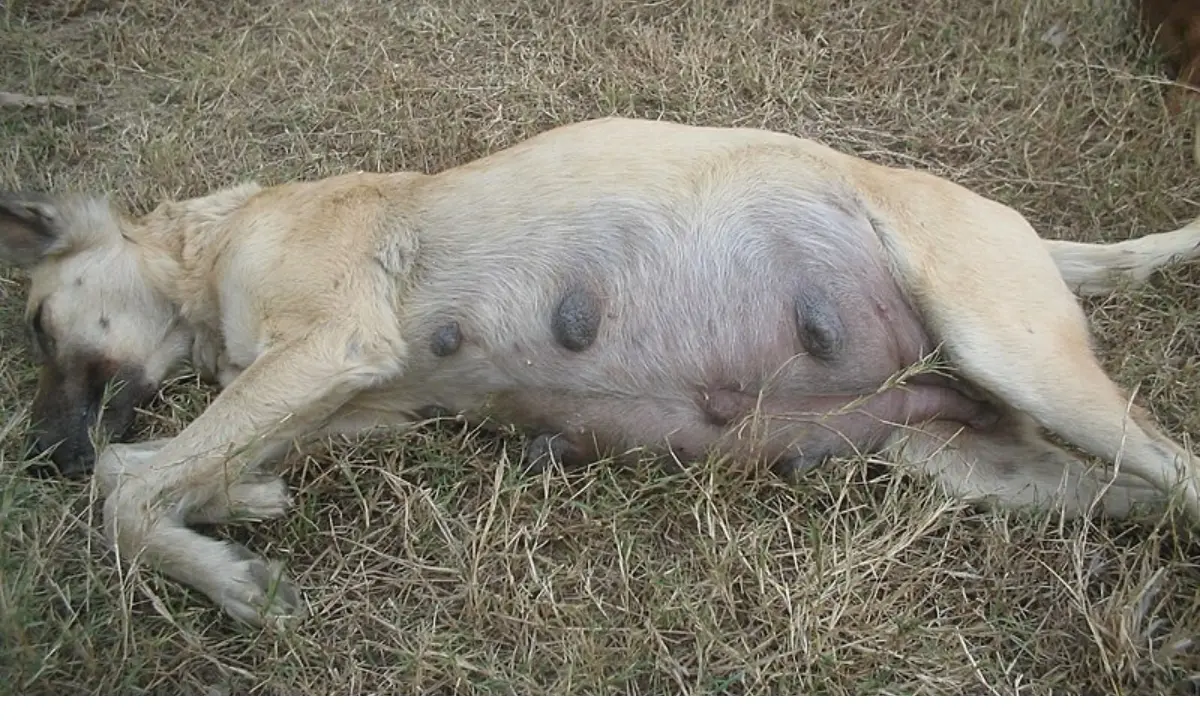How long are dogs pregnant
When it comes to our beloved furry companions, understanding their reproductive cycle is crucial. For dog owners, it is essential to have knowledge about the duration of a dog’s pregnancy, also known as the gestation period. This vital information allows for proper care and preparation, ensuring a smooth journey for both the expecting dog and her soon-to-be-born puppies.
The gestation period of dogs pregnant can vary depending on several factors, including breed and individual differences. Typically, dogs are pregnant for an average of 63 days. However, it is important to note that this number is an average, and some dogs may have shorter or longer pregnancy lengths.
Throughout the gestation period, a dogs pregnant goes through several stages, each with specific care requirements. By understanding these stages and providing appropriate care, dog owners can ensure the well-being of their furry companions. From the initial signs of pregnancy to proper nutrition and regular veterinarian check-ups, there are crucial steps to follow for a healthy pregnancy and successful outcome.
Key Takeaways:
- The gestation period of dogs, on average, is 63 days, but it can vary depending on breed and individual factors.
- Understanding the stages of dog pregnancy is crucial for proper care and preparation.
- Providing the right nutrition and regular veterinarian check-ups is essential for the well-being of the pregnant dog and her puppies.
- Monitoring for signs of complications and understanding potential issues during pregnancy is important for early intervention.
- Consulting with a veterinarian throughout the pregnancy journey is recommended for personalized advice and guidance.
Understanding Dog Pregnancy: Stages and Care Tips
During dog pregnancy, it is crucial for pet owners to understand the different stages their canine companion will go through. By recognizing these stages and providing proper care, you can ensure a healthy and successful outcome for both the mother and her puppies.
Initial signs of pregnancy
One of the first signs of dog pregnancy is a change in behavior or appetite. Your dog may become more affectionate or show nesting behaviors. Additionally, she may experience morning sickness or a loss of appetite. It is important to be aware of these initial signs and consult with a veterinarian to confirm pregnancy.
Nutritional requirements
Proper nutrition plays a vital role in supporting a pregnant dog’s health and the development of her puppies. Consult with your veterinarian to determine the appropriate diet for your dog. In general, pregnant dogs require a balanced diet that is rich in essential nutrients, including proteins, vitamins, and minerals.
Feeding smaller, frequent meals throughout the day can help prevent discomfort and accommodate the expanding space for the growing puppies. It is important to follow the recommended feeding guidelines and avoid overfeeding, as excessive weight gain can increase the risk of complications during labor.
Exercise guidelines
Exercise is essential during dog pregnancy, but it should be approached with caution. Regular, moderate exercise helps maintain muscle tone and overall health. However, excessive exercise or strenuous activities may put strain on the developing fetuses.
Always monitor your dog during exercise and avoid high-impact activities. Short, gentle walks and low-impact exercises are ideal for keeping your pregnant dog active and healthy. Consult with your veterinarian for specific exercise recommendations based on your dog’s breed, age, and overall health.
Routine veterinarian check-ups
Regular veterinary care is crucial throughout your dog’s pregnancy. Your veterinarian will monitor the progress of the pregnancy and address any potential health concerns. Routine check-ups may include ultrasounds to track the development of the puppies, vaccinations, deworming, and overall health assessments.
During these check-ups, discuss any changes or concerns you have noticed with your dog. Your veterinarian can provide guidance, support, and information on what to expect during the remaining weeks of pregnancy.
Remember, dog pregnancy is a crucial time that requires careful attention and care. By understanding the different stages of pregnancy and following the recommended care tips, you can ensure a healthy and successful outcome for your canine companion.
What to Expect During Your Dog’s Pregnancy
During your dog’s pregnancy, you can expect various physical and behavioral changes to occur. Understanding these changes is crucial for providing the appropriate care and identifying any potential issues that may require veterinary attention.
Physical Changes
One of the first physical changes you may notice is weight gain in your pregnant dog. As her body prepares to support the developing puppies, she may start to put on extra pounds. It is essential to monitor her weight and provide a balanced diet to ensure the health of both the mother and her puppies.
Another notable physical change is the development of the mammary glands. As the pregnancy progresses, the mammary glands will become more prominent and may even start producing milk before the puppies arrive. This is a natural process in preparation for nursing.
Behavioral Changes
During pregnancy, dogs may exhibit nesting behaviors. This involves creating a cozy and safe space for giving birth and raising the puppies. Your dog may start gathering blankets or other soft materials to build a nest-like area, signaling her instinctual preparations for motherhood.
Additionally, you may notice changes in your dog’s appetite and energy levels. Some pregnant dogs experience a decreased appetite, while others may have an increased craving for certain foods. It is important to provide a balanced and nutritious diet that meets her specific needs during this period.
Potential Complications
While most dog pregnancies progress without any issues, it is essential to be aware of potential complications. These may include miscarriage, stillbirth, or difficulties during labor. Monitoring your dog closely and seeking veterinary care at the first sign of trouble can help ensure a safe and successful pregnancy.
Remember, every dog is unique, and the specific symptoms and experiences during pregnancy can vary. If you have any concerns or questions, it is always best to consult with a veterinarian who can provide personalized guidance tailored to your dog’s specific needs.
| Physical Changes | Behavioral Changes | Potential Complications |
| Weight gain | Nesting behaviors | Miscarriage/stillbirth |
| Mammary gland development | Changes in appetite and energy levels | Difficulties during labor |
Conclusion
Understanding the gestation period for dogs pregnant is vital for responsible dog owners. By familiarizing yourself with the stages of pregnancy, providing proper care, and knowing what to expect, you can ensure a safe and positive experience for both your dog and her puppies.
Throughout the pregnancy journey, it is crucial to consult with your veterinarian for personalized advice and guidance. They can offer valuable insights into your dog’s specific needs and any potential complications that may arise.
Remember, your dog is relying on you to provide the support and care she needs during this transformative time. By being well-informed and proactive, you can help to ensure the health and well-being of both your beloved pet and her growing family.

FAQ
How long are dogs pregnant?
The gestation period for dogs is typically around 63 days. However, this can vary depending on several factors, including the breed of the dog and individual variations.
What are the stages of dog pregnancy?
Dog pregnancy is divided into three stages: the initial stage, where fertilization occurs and embryos implant in the uterus; the middle stage, marked by physical changes in the dog’s body; and the final stage, where puppies are developed and ready for birth.
What care should I provide during my dog’s pregnancy?
During your dog’s pregnancy, it’s important to provide proper care, including a balanced and nutritious diet, regular exercise, and regular veterinarian check-ups. Pregnant dogs have specific nutritional needs, and it’s important to consult with your veterinarian about the best diet for your dog during this time.
What are some common signs of dog pregnancy?
Some common signs of dog pregnancy include weight gain, enlarged and darkened nipples, nesting behavior, and changes in appetite and energy levels. It’s important to note that these signs may vary between dogs, and a veterinarian can confirm pregnancy through physical examination or diagnostic tests.
Are there any complications that can arise during dog pregnancy?
Yes, there can be potential complications during dog pregnancy, such as miscarriage, stillbirth, or difficulties during labor and delivery. Regular veterinary check-ups and monitoring can help detect any potential issues early on, and it’s crucial to seek professional veterinary care if you notice any concerning symptoms or behaviors.
How can I ensure a safe and positive experience for my dog and her puppies?
To ensure a safe and positive experience for your dog and her puppies, it’s important to provide a comfortable and stress-free environment, follow your veterinarian’s advice regarding nutrition and exercise, and be prepared for labor and delivery. It’s also essential to have a plan in place for the care and socialization of the puppies once they are born.
Should I consult with my veterinarian during my dog’s pregnancy?
Yes, it’s highly recommended to consult with your veterinarian throughout your dog’s pregnancy. They can provide personalized advice, monitor the health of your dog and her puppies, and address any concerns or complications that may arise.
